The stark reality of life for women in the armed forces
Veterans and MPs tell Maya Oppenheim how issues of sexual harassment and sexism prevail

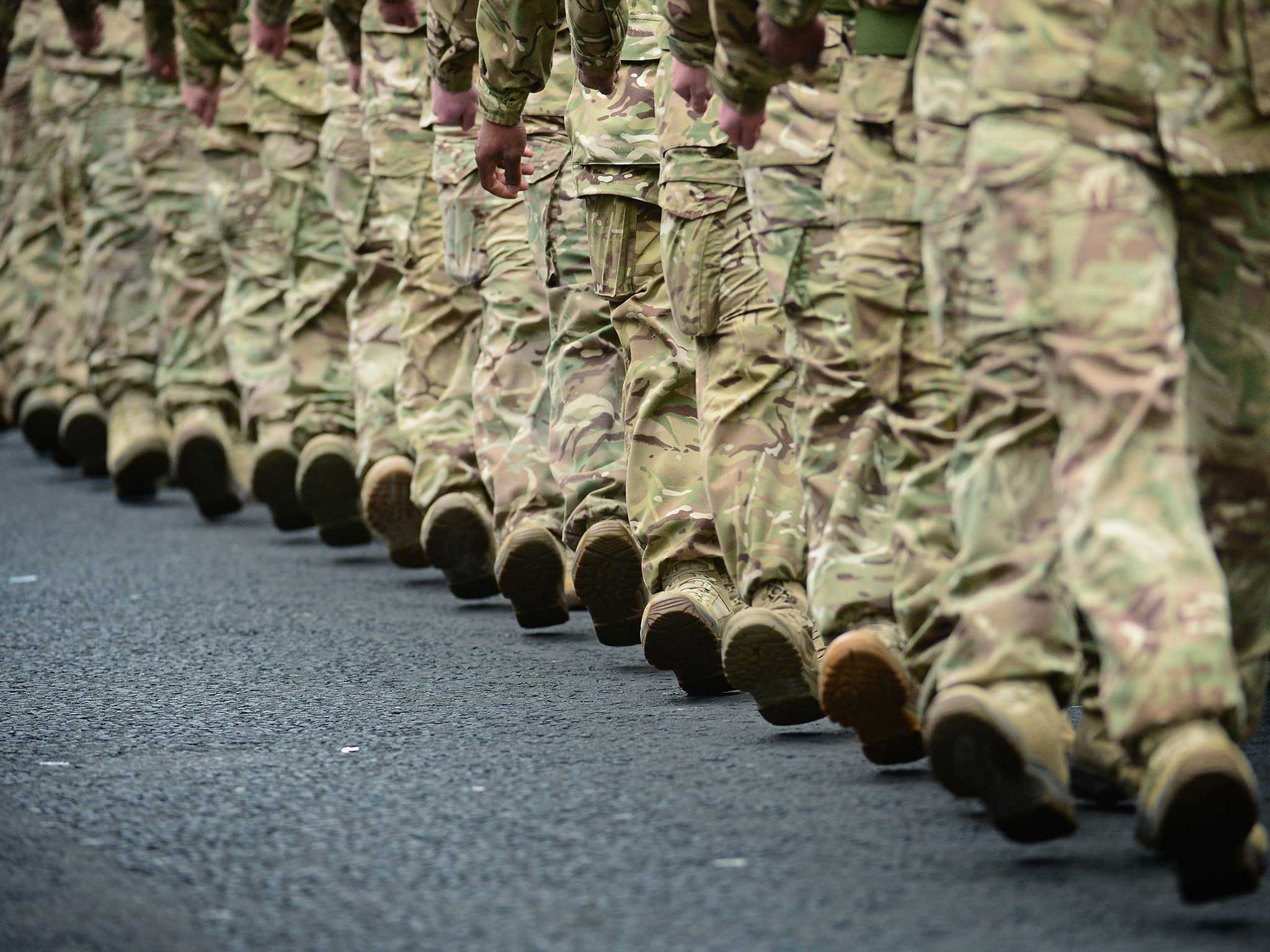
Your support helps us to tell the story
From reproductive rights to climate change to Big Tech, The Independent is on the ground when the story is developing. Whether it's investigating the financials of Elon Musk's pro-Trump PAC or producing our latest documentary, 'The A Word', which shines a light on the American women fighting for reproductive rights, we know how important it is to parse out the facts from the messaging.
At such a critical moment in US history, we need reporters on the ground. Your donation allows us to keep sending journalists to speak to both sides of the story.
The Independent is trusted by Americans across the entire political spectrum. And unlike many other quality news outlets, we choose not to lock Americans out of our reporting and analysis with paywalls. We believe quality journalism should be available to everyone, paid for by those who can afford it.
Your support makes all the difference.Dodging danger is to be expected during a career in the armed forces. Less known, however, is the threats faced by female soldiers from within their own ranks.
From the time she knocked out a male colleague who followed her to her room, to the time fellow soldiers kicked down her door in the middle of the night, Lieutenant Colonel Diane Allen says she narrowly dodged danger on more occasion than one.
Casting her mind back to the first incident, Lieut Col Allen, who stepped down a year ago over alleged discrimination, told of how a senior male officer allegedly followed her after she left the bar when she was deployed in Germany at the age of 21.
“This chap had been quite persistent in the bar,” the former officer, who spent most of her three-decade-long military stint in the Intelligence Corps, tells The Independent. “I made my excuses. He followed me. He tried to physically block me from going into my room. I hit him with my elbow on the side of his head. I was trained in karate. I knocked him to the ground and went into the room while he was on the ground, closed the door and locked it. He disappeared. I never reported it.”
Lieut Col Allen, who was one of the first women in history to train at Sandhurst at the age of 18, says the fact the armed forces can investigate rape and sexual assault allegations internally has forged “a culture of silence” which deters victims and witnesses from speaking out.
The ex-officer, who has written a book called Forewarned about her time in the military, said when she joined the army in the 1980s sexism was “endemic” in the military.
“Gradually it changed in the 1990s to a much more subtle undercover type of sexism,” she explains.
“I don’t think it is getting better. Progress stalled in the 1990s. It really has not improved significantly since then. People are against it and it is against employment law but it is still in toxic pockets.”
She also spoke of her own personal experiences of sexual harassment, recalling a time working as a ski instructor in an all-male infantry unit many years ago when she was in her mid-twenties.
“All day they would proposition me,” she added. “I ignored them when they invited me to the bar. I stayed in my room all week in the evenings. You could sense by going to the bar I would be putting myself in harm’s way. I made the decision to move room on the last night. I was woken up by a crashing noise. Through a glass door, I watched them kicking down my door to get me, but I wasn’t there as I’d moved rooms because I sensed there was going to be trouble.”
Lieut Col Allen, who is calling for a military MeToo movement, said the military is like a “microcosm” of society and there are significant variations within it.
“An all-male infantry unit with weak leadership can be quite predatory,” she added. “Other areas of the armed forces are nothing like that.”
Lieut Col Allen noted women continue to be a minority group in the military – constituting just eight to 10 per cent – as she warned the senior leadership in the army, navy and the RAF say they take the issue “very seriously” but this is “not reflected in actions”.
She added: “Women have come forward to me who have had sexual harassment, sexism, sexual assault, and gender discrimination. It is really varied. There are multiple stories of rape, of being drugged and raped.”
Her comments are echoed by MPs who warn convictions rates in cases of rape and sexual assault remain “shamefully low”.
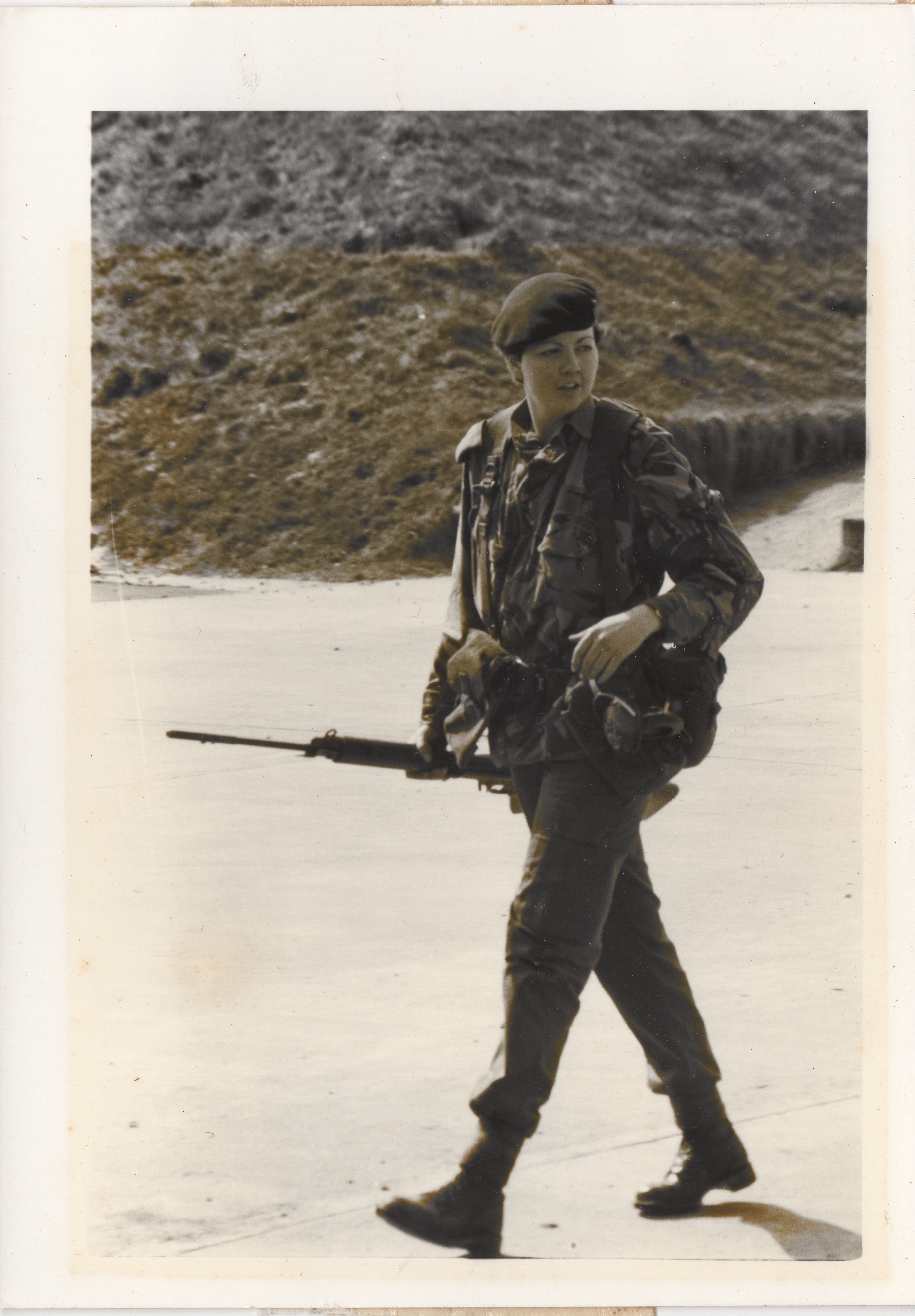
Senior figures told The Independent progress on tackling sexism and sexual harassment in the armed forces has been too slow and women in the military often face a sexist culture of “laddish behaviour”.
Figures from the Crown Prosecution Service show 68 per cent of rape cases that made it to a normal civilian court in 2019-2020 resulted in a conviction, while only 20 per cent of rapes cases tried in a military court led to a conviction in 2019.
Government data shows 57 cases of sexual assault were heard in the military courts in 2019 but only 17 were convicted, and only three out of a total of 15 rape cases resulted in conviction.
Andrea Simon, director of the End Violence Against Women Coalition, said: “Rape is effectively being decriminalised, with the overwhelming majority of cases never making it to court in the first place.
“The criminal justice system is in crisis and these shocking statistics show even fewer cases are being pursued in the military courts. The Ministry of Defence should work with other government departments to tackle this issue.”
Sarah Atherton, who is chairing a government inquiry called Women in the Armed Forces: From Recruitment to Civilian Life, told The Independent she has heard “some terrible stories” from female serving personnel and veterans in the last year.
The Conservative MP for Wrexham, the first sitting female MP who has a regular military background, added: “I have definitely heard accounts of bullying, discrimination, harassment, and rape.
“Our subcommittee covers all aspects of the female military experience, from recruitment to retention to returning to civvy street, and there were 4,106 respondents to our survey of serving and veteran women.”
She noted women are overrepresented in the service complaints system as she warned there are issues around justice in the military for women and explained the inquiry marks the first time the “female military experience” is being talked about “in-depth”.
Ms Atherton, who sits on the government’s defence committee, said: “It is a long-overdue conversation. The issue of stamping out a culture of ‘laddish behaviour’ in the military – the words of the current Chief of Defence Staff – is something that transcends party lines, and extends back generations.
“There is no doubt that the situation for women in our armed forces is improved. We have come a long way, especially since I was in the military. However, there is no doubt that there is more to do.”
While serving personnel are blocked from speaking to members of the media or MPs about their experiences, these rules have been lifted for her inquiry.
Stephen Morgan, the shadow armed forces minister, said it is a “sad fact” women continue to grapple with “serious challenges” while serving.
“Women are still underrepresented across the services, yet make up a disproportionate amount of service complaints. They also continue to endure shamefully low conviction rates in cases of rape and sexual assault,” the Labour MP for Portsmouth South added.
“This not only falls short of the high standards those who serve should expect, it also presents a threat to recruitment and retention that could undermine operational capabilities.”
He said the Labour Party will be striving to tackle this via the Armed Forces Bill in order to carry on making the forces more “inclusive and diverse”.
Sally Orange, who was in the armed forces for 22 years but left in November 2019, said on social occasions with alcohol, she was “pestered a bit”.
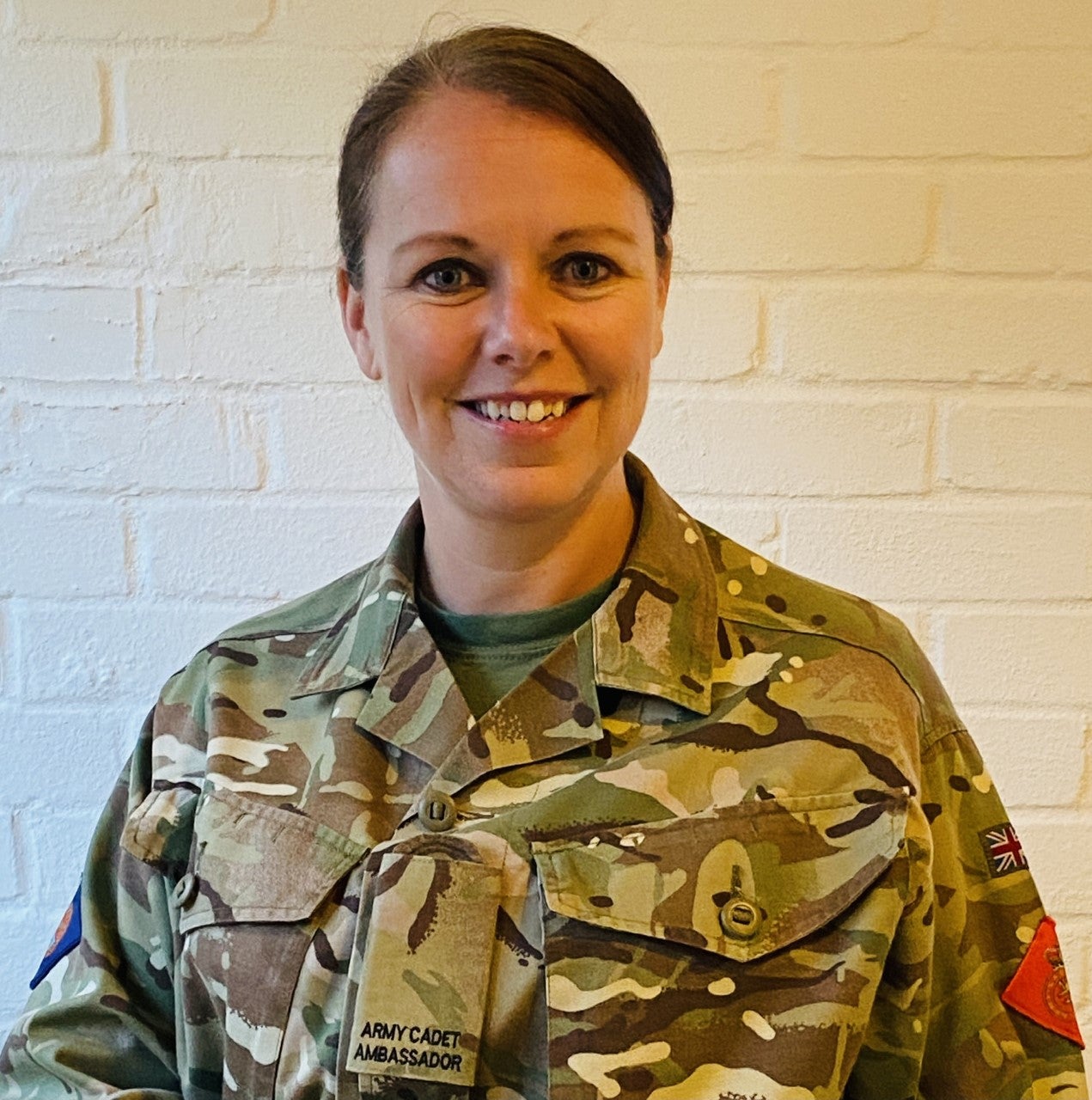
The 46-year-old, who was a physiotherapist in the military, said sexism was spawned by the fact training was previously carried out in single-sex companies or platoons.
“This is inadvertently creating misogyny,” she added. “I did experience it, but seldom was it deliberate. Was I surprised? Not really. A lot of other sectors have comparable challenges so the armed forces isn’t alone – such as the City. It has been a predominantly male culture for so many years.”
A representative for the Ministry of Defence said all harassment is “unacceptable” and they are committed to generating a “welcoming and inclusive environment” in the armed forces.
The spokesperson added: “The Armed Forces Bill addresses the need for clearer guidance for the handling of serious crimes by creating a duty for both prosecutorial authorities to jointly develop a protocol on how they should be dealt with. This will ensure that decisions can be made on a case-by-case basis to offer the most appropriate route to justice for each offence.
“Due to the relatively low number of rape cases that are reported to the Service Justice System, and that a higher proportion of them get passed on to prosecutors, comparative conviction statistics are not reflective of the whole process.”
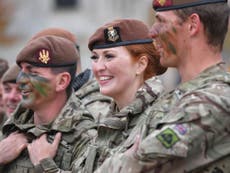

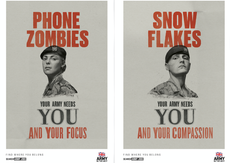

Join our commenting forum
Join thought-provoking conversations, follow other Independent readers and see their replies
Comments